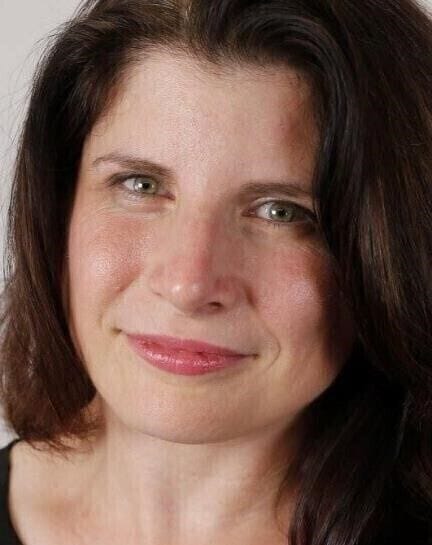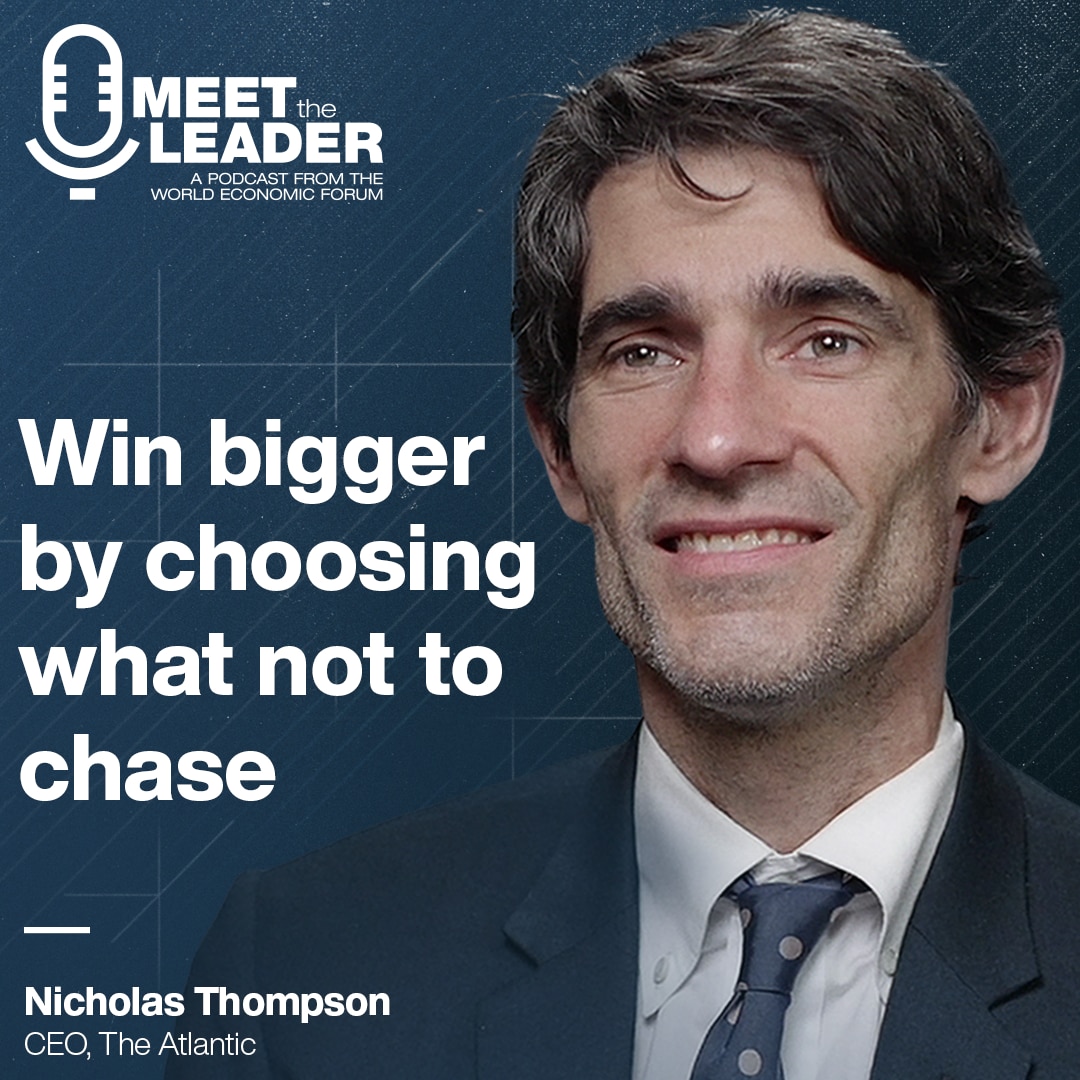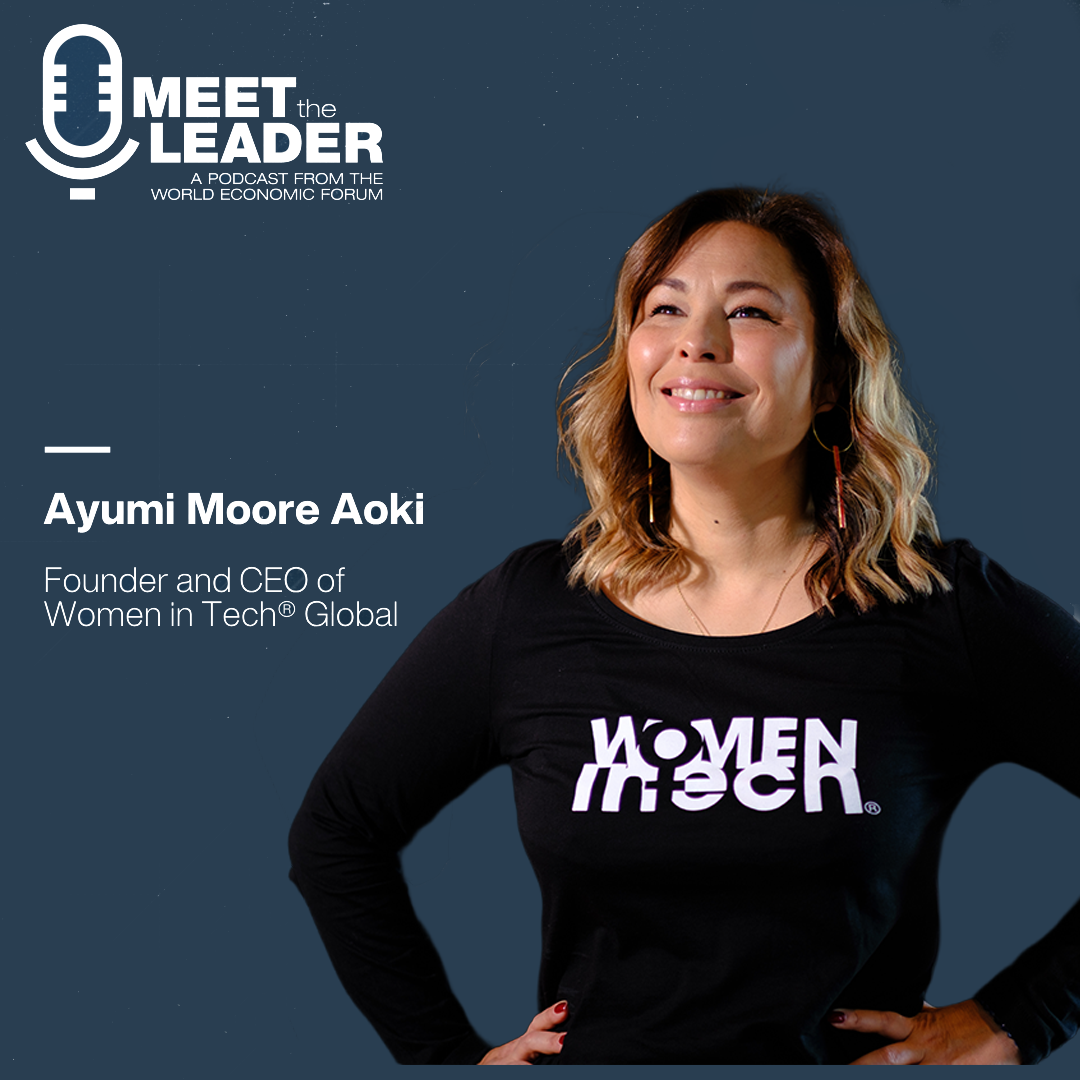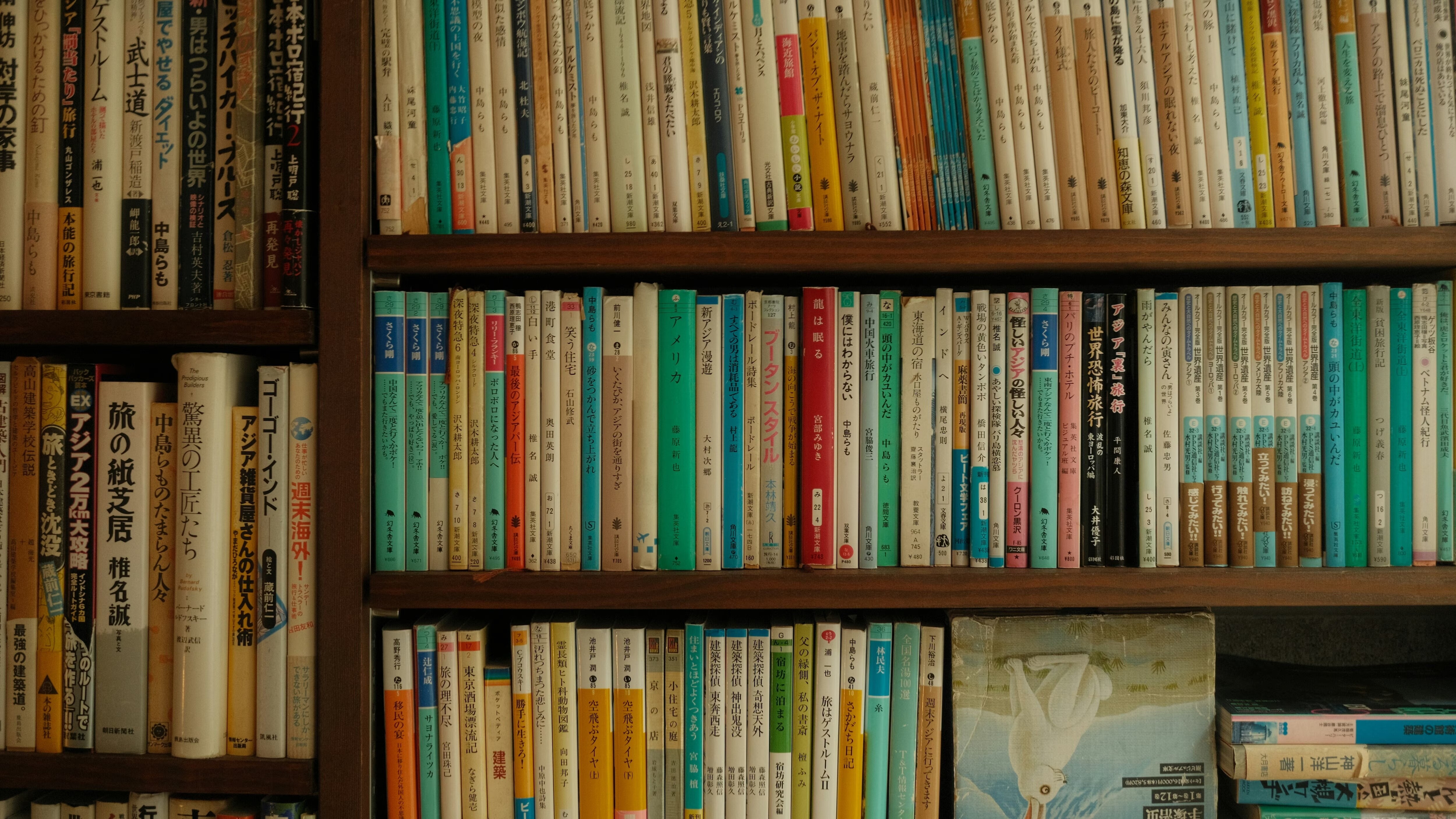From unjust conviction to quilt art and activism
ポッドキャスト・トランスクリプト
Gary Tyler, artist and activist: Many people, it is kind of hard to, hard to understand men in prison doing quilting. No, that is a no-no. But when you’re doing it for meaningful cause, for a purpose of being able to provide the services for the men that are dying, why not? It is a humanitarian cause.
My 17 years of being a hospice volunteer, I, I never knew that life was so important. That here you are talking to someone today and they are gone tomorrow. And we're talking about some men that I've known and men that I figuratively grew up with in prison. It helped me to appreciate life knowing that I was providing for terminally ill. Men that at any given day would pass, men that I would never see again in life.
Kateryna Gordiychuk, Meet The Leader: Welcome to Meet The Leader. I'm Kateryna Gordiychuk and I'm introducing you to Gary Tyler, who's a fiber artist for social justice. Hi, Gary.
Gary Tyler, artist and activist: Hello. Good morning.
Kateryna Gordiychuk, Meet The Leader: Good morning. You have such a remarkable story. And we're so, so lucky to have you here in the studio with us. How do you even start describing your life journey and what got you here?
Gary Tyler, artist and activist: Well. You know, it's, you know, I've been asked that question many times and I've answered it in many different ways because it's not one way that you can answer, especially when it's so traumatic. But what I do in turn is that I just try to get people to understand that despite my ordeal, I was able to, you know, overcome it. And through art.
That was one of the things that I was able to, to mirror my, my experience, to give people an understanding of what I went through. And, and this basically was born out of me being able to take care of terminally ill men in prison.
It all started off as making quilts for the patient. And when the patient passed, we passed it on to their family as sentimental values because this is something that kept their loved one warm.
And, and as time went on, it was it was a thing about what could we do to raise funds for the programme, to be able to, you know, purchase the necessary things that men in prison is not necessarily afforded. So, we started doing that, making quilts to sell and to buy things. And also the funds that we raised for quilting, it enabled the programme to finance the trips and the flights, as well as of paying for hotel expenses for family members that was out of state.
And it became rewarding. So that itself was kind of, kind of like catapulted me to into art.
Kateryna Gordiychuk, Meet The Leader: You were 17 when you were sentenced to death and commuted to life. At one point during your 40 years in prison did you turn to art?
Gary Tyler, artist and activist: Well, you know, it's, it's, it's ironic that when I was first brought to death row, one of the guys that was on the tier, he was in his cell and he was putting, you can say jewelry boxes, picture frames together with matchsticks. And I noticed that. And to me, it was kind of like, wow, this is what this guy do, you know, for his past time. But it became an art for him.
This something that he was making for his loved ones when they visit. Moreso, when he was getting cigarette tobacco, you know, packets and making a picture frames and, you know, jewelry boxes. That drew my interest and I wanted to notice, you know because also it was a thing but you put in a six by, you know, six by nine cell what it is that you're going to do? Read books, concentrate, you know, stand and grieve in your, you know, in your demise? No, I wanted something to keep me preoccupied. And that was something that I did, even though it didn't cure, you understand, the situation as a whole. But it gave me something to focus on. And later on, that itself helped me to transition into, into doing art, mainly the quilts for hospice.
It gave me a sense of pride knowing that I was on the right path, that I was giving back and that I was helping to expose the injustices and unfairness of the criminal justice system.
”Kateryna Gordiychuk, Meet The Leader: Why quilting? Why is this, was it that specific artform that you chose?
Gary Tyler, artist and activist: Well, let me tell you, it wasn't easy, alright? It was something that I was literally, I would say, coerced by friends, you know, that they needed help. And I kind of like shorn away from it because quilting to me in the men's prison was something feminine. And, and I didn't want to be associated with that.
But by knowing that I was a hospice volunteer and these guys needed help, I kind of, like, relented and started helping them. And next thing you know, I was sold on it. And I started doing quilting, you understand, and it became a passion of mine.
Kateryna Gordiychuk, Meet The Leader: What do you think convinced you about it? Because that is such a dramatic change, right?
Gary Tyler, artist and activist: Well, you know, what's so amazing about quilting is that it’s the finished product. That you get material and you match it and you put it together and it draws pictures, all kind of pictures, depending on what vision and frame of mind that you want your quilt to come out. And by me being a graphic art graduate, I utilize applique into quilting. And in which case, you know, I didn't know that it was going to apply. But when it did work that kind of like I mean it sent me out there that I wanted to do more. I want to do the impossible while being a quilter, you understand.
And then, it was in my DNA because my grandmother, she was a quilter, and my mother, she was a seamstress. My mother made clothing for her and my sisters out of old JC Penneys and Sears catalogue where they had the patterns. And she used to make that, but, you know, as a kid, you don't pay much attention to that. But as I reflect back on my grandmother sitting at the sewing machine – it was one of those old-fashioned Sears sewing machines that you paddle – so, you know, I had this kind of like flashback and I realized: "This is in your DNA, this is part of your family history."
So I really began to embrace it, knowing that it’s a tradition that needs to be carried on by generations. But of course, why me as a man? You know, many people, it is kind of hard to, hard to understand men in prison doing quilting. No, that is a no-no. But when you’re doing it for meaningful cause, for a purpose of being able to provide the services for the men that are dying, men that you know, subject of leaving any time, why not? It is a humanitarian cause.
It helped me to appreciate life knowing that I was providing for terminally ill men that at any given day would pass, men that I would never see again in life.
”Kateryna Gordiychuk, Meet The Leader: It might be a bit sentimental of me, Gary, but it makes me feel as though that quilting connected you back to your family?
Gary Tyler, artist and activist: Yes, it did. Most definitely. It helped me, you know, it helped me to appreciate life knowing that what I was doing, I was providing for the men, that, that was terminally ill, men that at any given day would pass, men that I would never see again in life.
And we're talking about some men that I've known and men that I figuratively grew up with in prison. So, yes, you know, it’s something that I found myself embracing and feel as though that you can tell stories, you can be able to relate to, to the world and let people know that, you know, art is beautiful, especially when you’re doing quilting.
Kateryna Gordiychuk, Meet The Leader: Gary, do you remember one of the pieces, one of the first maybe pieces that you were felt really proud of that you made?
Gary Tyler, artist and activist: Well, it was the first piece, you know, having to be able to have the liberty of doing something that you wanted to do. You know, you saw you saw the guys that worked around you doing their individualized pieces. And having to sit there and contemplate what it is that you want, you know, you want to do. And, and sitting there and, and meticulously cutting the pieces out and matching the colors and putting it together.
Oh yes, the first one was, you know, I mean, it, to me, it was it was my best piece. But even though it was the beginning, you know, but it also gave me an appreciation of knowing that this is something that can be rewarding, you know. And, and, yes, it was my first piece. And it was it was made of windmills and hearts.
Kateryna Gordiychuk, Meet The Leader: You said that you started quilting originally because your friends convinced you to?
Gary Tyler, artist and activist: Yes.
It all started off as making quilts for the patient. And when the patient passed, we passed it on to their family because this is something that kept their loved one warm.
”Kateryna Gordiychuk, Meet The Leader: And it was to help them and you felt like it really helped their trauma and it helped to save their life. So that was, already for you, such a big tool for social justice then?
Gary Tyler, artist and activist: Yes. Yes. And you know, we're talking about men and what's so what's so depressing about it is that, my 17 years of being a hospice volunteer, I, I never knew that life was so important, that here you are talking to someone today and they are gone tomorrow. And through the process you get to know the individual family and how much they love their loved one.
And then having to be there when the individual expired. You know, and knowing that where's the mercy? Where's the forgiveness? And in a criminal justice system where this individual could have been, you could say, medically paroled to his family, where he'd been able to spend his time, at least his remaining days with his loved ones, you know, giving an individual a second chance. And that's something that the criminal justice system failed. If you say that you're about justice, then you should have mercy for those that are not able to fend for themselves or speak for themselves.
Kateryna Gordiychuk, Meet The Leader: Gary, as I was thinking about your quilts, a lot of them have been made when you were incarcerated, but now they're displayed all over the world,. How does it make you feel to see them all around and how do your quilts affect people?
Gary Tyler, artist and activist: Well, that wasn't my original purpose from the beginning. But when, as time went on, and I've been encouraged by others saying, man, that people love your artwork and you’re good at this, you know, it kind of like gave me a pat on the back that I was doing something that was quite meaningful.
And I never knew that many years later that the quilts that I, you know, was instrumental in making, that these quilts would find their way in museums. I never knew that, you know, one of the quilts that we made, that would be in an African-American museum, but when it was told to me, I felt it was a, it was a great accomplishment because, you know, it exemplifies the heart and soul of those of us that was, you know, incarcerated. You know, so it gave me a sense of pride knowing that I was on I was on the right path, that I was giving back and that I was helping to expose the injustices and unfairness of the criminal justice system.
If you say that you're about justice, then you should have mercy for those that are not able to fend for themselves or speak for themselves.
”Kateryna Gordiychuk, Meet The Leader: You've had such a difficult life. And yet you speak with such inspiration and you don't seem angry about what happened to you. How has art helped you in this process?
Gary Tyler, artist and activist: Well, you know, many people say why are you not bitter? How did you survive this? You know, you never know what you're capable of doing. Well, unless you're in a situation where you're being forced to make decisions on a daily basis. Do you want to live or do you want to come a victim of the turmoil and violence of the prison life? And I went through my transition. I was bitter. I was, I became resentful. I became, very, you know, disappointed in what had happened to me. You know, I was young, I was going through, you know, you could say, this transition as a young man.
But as time passed, I realized that there had to be some self-reckoning because if I want to move forward, then I have to first start forgiving myself, not allowing myself to capitulate and falling, you know, mentally victim to the system itself. And then reach out with and forgiving the ones who was, I mean who was forced to testify against me in court. So once I went through that transition and I realized that that fork in the road, and the suffering that I went through, it gave me the ability to make the right decision in my life.
Kateryna Gordiychuk, Meet The Leader: What do you what kind of lessons would you have for people who have not had your experience? How do you persevere? How do you stay strong and, as you said, make these decisions when you're forced to make them every single day?
Gary Tyler, artist and activist: Well, I would like, I would like to emphasize to our community, whether it is local, national or international, that the people that we know that we meet, that we went to school with, no one is perfect. And if someone, you know, find themselves on the other side, you could say, of the law, it doesn't necessarily make them a bad person. We should always remember those individuals that's in prison are members of our community, they are family members of people that we know, if not our own family members. And we should never forsaken them. We should never, you could say, turn a deaf ear on those who reaching out for help.
Let's try to help to rehabilitate and make this individual whole. This person could be, they could contribute back to our community. Well if we isolate him and ignore him and try to make it as though they no longer exist, it works, I mean, it works against society when that happens because that individual one day may be released from prison. But you will want that person to be released who willing to give back to the community, who recognize the wrong things that he did in this community and will stay in work to try to make things right. Not sit back and spite the individual, where when a person is finally released, he feels vindictive, he feels hateful about society.
No, I've got a feeling that society have failed our community and the failure of our community breeds such just such criminality and disappointment where people are forced to do the things that they're doing, you know. So, society must take accountability, especially criminal justice system, because you can't make all hat feel, one hat fit all because one hat doesn't fit all. Everybody change and everybody should be given a second chance at life.
Kateryna Gordiychuk, Meet The Leader: So taking responsibility as citizens.
Gary Tyler, artist and activist: Yes, taking responsibility.
Everybody should be given a second chance at life.
”Kateryna Gordiychuk, Meet The Leader: What is the piece of advice that you've been grateful for that has helped you through these years?
Gary Tyler, artist and activist: Never give up. Persevere despite the challenges. And remember, just because you're in prison doesn't mean that it, it diminishes the possibilities that you can make a difference in your community. And they always say that service to humanity is the best work of life and Earth’s greatest treasure lies in human personality.
Kateryna Gordiychuk, Meet The Leader: Thank you so much, Gary.
Gary Tyler, artist and activist: Thank you.
Kateryna Gordiychuk, Meet The Leader: That was Gary Tyler, Fiber Artist for Social Justice. For more episodes of Meet the Leader, go to the World Economic Forum’s YouTube page or wef.ch/podcasts.
Today, Gary Tyler is a renowned fiber artist and activist. But he was once the youngest person on death row in the U.S., a man unjustly incarcerated at just age 17. He talks with World Economic Forum video producer Kateryna Gordiychuk about how his experience in prison introduced him to the medium and shapes his art. While incarcerated, Gary worked as a volunteer during the AIDs epidemic in one of the first prison hospice programs in the country. The need to fund the program led Gary to learn quilting to help raise money that could aid both the dying men and their families who wouldn’t be able to travel to see their loved ones otherwise. The experience drove home for Gary the need for mercy and advocacy in systems where people cannot advocate for themselves. Today, his art explores themes of freedom and individuality and he speaks frequently on the contributions any individual can make, regardless of their circumstance.
Guests:
トピック:
アートとカルチャーその他のエピソード:
「フォーラム・ストーリー」ニュースレター ウィークリー
世界の課題を読み解くインサイトと分析を、毎週配信。







